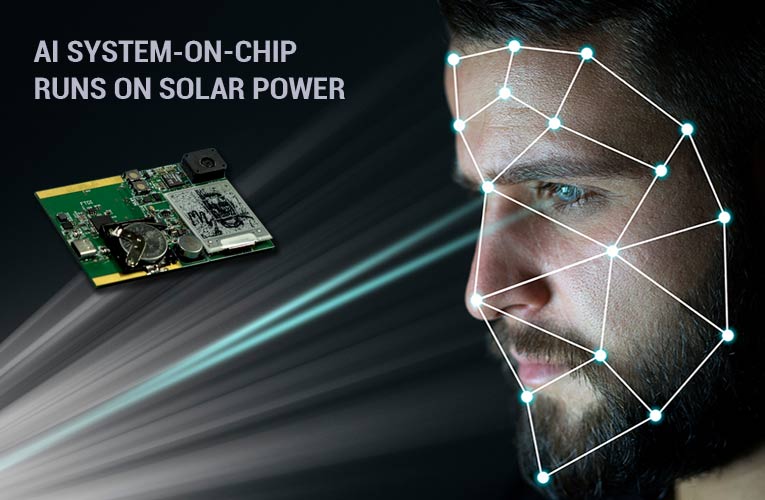
AI-based technology requires a lot of power to run and needs to be permanently connected to the cloud, raising data protection, energy efficiency, and security concerns. As a solution to this, Engineers from the Swiss Center for Electronics and Microtechnology (CSEM) have developed an AI system-on-chip that runs on Solar Power. This integrated circuit is capable of carrying out complicated Artificial Intelligence operations like face, voice and gesture recognition, and cardiac monitoring.
Powered by a tiny battery or solar panel, this new SoC consumes low levels of power and executes AI operations at the edge, and can be easily configured to be used in almost any type of application. The demonstrated system on the chip is implemented on a low-power platform with an image sensor and an e-ink display, thereby displaying the capabilities of the dual engine accelerator.
The system comprises of an ASIC chip with a RISC-V processor and two tightly coupled machine-learning accelerators (one for facial detection and the other for classification).
When used in voice recognition, the first accelerator will determine whether noise is present and if that noise corresponds to human voices. But it can’t make out specific voices or words. On the other hand, the second machine-learning accelerator is a convolutional neural network engine for performing more complex tasks, such as recognizing individual faces or specific words. It consumes far more energy and runs only when necessary.
The system is highly versatile, modular and can be tailored to any application for which real-time signal and image processing is required. The team said that with this chip, we can lower the power consumption a lot, and run the whole system on a single coin cell battery for multiple months. The machine learning chip enables battery-powered operation, opening the door for new applications that have not been possible before.

